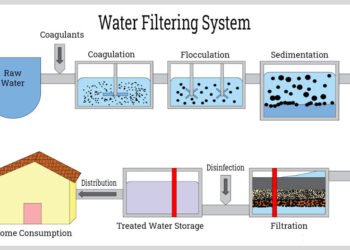When you spot some weeds sprouting up in your garden, your first thought may be to reach for the Roundup. This commonly used product can be highly effective at killing unwanted weeds in lawns and gardens. But have you ever considered what’s in this product that’s so effective at destroying weeds? The answer might surprise you. Keep reading to learn about the potential risks of Roundup and some safe alternatives you can try instead.
What Are the Risks Associated With Roundup?
Roundup and similar products include glyphosate as an active ingredient. Glyphosate, a common herbicide, has been linked to serious health complications, including cancer. The International Agency for Research on Cancer (IARC) has classified the herbicide as “probably carcinogenic to humans” based on evidence in both humans and animals. Currently, thousands of people have filed lawsuits against the maker of Roundup for health complications, including non-Hodgkin’s lymphoma, other types of lymphoma, and leukemia.
Safe Roundup Alternatives
With the potential health risks associated with Roundup and similar products, you may be searching for safe alternatives to eliminate those unwanted weeds from your lawn or garden. Fortunately, there are other products available with less toxic ingredients. You can also explore other alternatives, such as mulch and manually pulling weeds, to keep your outdoor space looking beautiful. Many of these methods can be just as effective as Roundup if done correctly. Here are some safe alternatives to Roundup.
Acid-Based Herbicides
Instead of choosing products with glyphosate as the active ingredient, look for acid-based herbicides. These products use high concentrations of acetic acids, such as vinegar, to manage weeds. The acid damages the outer leaves to create a breakdown in cells, which in turn destroys the weed.
In some cases, acid-based herbicides destroy the weed you see above ground, but they don’t get to the root of the plant. For this reason, you may need to use the product more than once to kill the weed fully. These products also work best as a method to kill weeds after they appear, rather than as a way to prevent them in the first place.
Acid-based herbicides contain higher amounts of acetic acid than the vinegar you may use in your household. Make sure you take the necessary precautions when using these products. Follow the instructions carefully and wear protective equipment, such as gloves and goggles, during application.
Corn Gluten
To tackle weeds before they become a bigger issue, consider using corn gluten. It comes in both powder and liquid variations, and you can use it over large areas. It’s effective at destroying grass weeds and germinating seeds. The advocacy organization Consumer Notice recommends spreading 20 pounds of corn gluten for every 1,000 square feet of lawn or garden. If it doesn’t rain, water the area after five days. When used correctly, corn gluten can eliminate weed growth for up to six weeks.
This method is less effective when you use it to kill weeds that have already appeared. Additionally, corn gluten can be more expensive than other alternatives.
Mulch
Mulch is a natural, effective way to manage weeds in your garden. It works by blocking the sunlight so weeds don’t have a chance to grow, essentially suffocating the seeds. You can use various types of mulch to control weeds, including leaves, grass clippings, or small wood chips. To mulch effectively, create a 2- to 3-inch layer. It’s also helpful to lay mulch on top of landscape fabric. Mulch breaks down over time, so make plans to reapply it periodically, such as once a year.
While it’s a safe alternative to Roundup, mulch also has some downsides. Using landscape fabric may cause damage to your soil. With time, the fabric may also deteriorate and release chemicals into the ground.
Manually Pulling Weeds
Of course, you can always deal with weeds after they emerge by manually pulling them. It’s best if you can pull the weeds out before the roots become established. For this reason, perform frequent weeding every couple of weeks or so. Make sure you’re working to pull weeds out by their roots. With this method, you can work to eliminate roots before they become entrenched in your lawn or garden.
While the weed-pulling method is tried and true, it involves considerable time and effort compared to other methods. In addition, if you simply pull the weeds up without getting to the root of the plant, they’ll just keep coming back. Once they’ve established a root system, it can be much tougher to remove them entirely.
The next time you’re ready to tackle the weeds in your garden, consider using a safer alternative to Roundup. Organic products and other methods like mulch can be just as effective in killing those pesky weeds before they become a larger problem.












